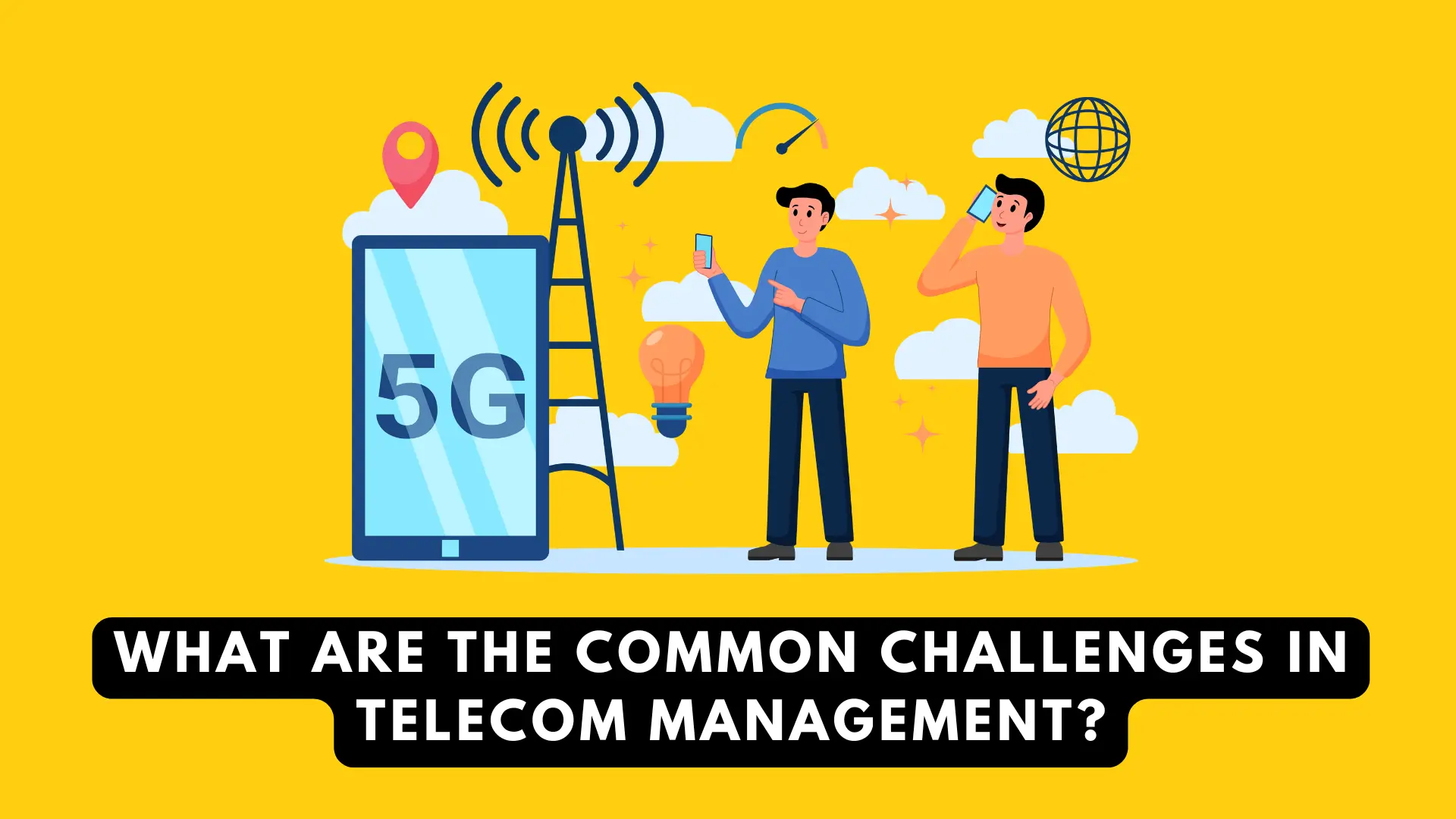Telecom management faces a myriad of challenges that can hinder operational efficiency and service quality. As communication technology evolves, companies must adapt to meet the demands of their customers while navigating complex regulations and ensuring network security. From infrastructure issues to customer experience hurdles, the telecom sector is constantly under pressure to innovate and provide seamless services. This article will explore some of the most common challenges in telecom management, offering insights into how organizations can overcome them to thrive in a competitive landscape.

Infrastructure and Technology Issues
Addressing Infrastructure and Technology Upgrades
Upgrading infrastructure and technology is one of the most pressing challenges in telecom management. Companies like Huawei are at the forefront of providing innovative solutions that help telecom operators modernize their systems. However, the transition to new technology can be complex and costly. For example, integrating next-generation technologies like 5G requires significant investment in both hardware and software, along with extensive personnel training. The challenge lies in ensuring that these upgrades do not disrupt existing services or create gaps in customer experience. Telecom management teams must carefully plan and execute these transitions while keeping downtime to a minimum.
Managing Network Complexity and Reliability
As networks grow increasingly complex, managing them becomes a significant challenge. The interconnectivity of various devices and services introduces vulnerabilities that can lead to outages and service interruptions. Telecom operators often use platforms like telecomadmin to help monitor and manage these networks efficiently. However, with multiple layers of technology, ensuring network reliability is crucial. Telecom companies must implement robust network management systems to monitor performance, detect anomalies, and respond to issues in real time. This level of vigilance helps maintain service quality and fosters customer trust.
Regulatory Compliance Challenges in Telecom
Telecom companies must adhere to various regulatory requirements that can complicate management processes. These regulations are often designed to protect consumer rights and ensure fair competition within the industry. However, compliance can be a daunting task, especially as rules change frequently. For example, regulations surrounding data privacy and security have become increasingly stringent, requiring telecom providers to implement comprehensive security measures to protect customer data. Failure to comply with these regulations can result in hefty fines and damage to a company’s reputation. Therefore, telecom management must remain agile and informed about regulatory changes to ensure compliance without compromising service quality.

Customer Experience Issues in Telecom Management
Customer experience is at the heart of successful telecom management. In an age where consumers expect seamless service and quick resolution of issues, any lapse can lead to dissatisfaction and loss of business. Telecom operators often struggle with maintaining high levels of customer service, particularly during peak times when demand surges. Moreover, the proliferation of digital channels means that customers expect support through various platforms, including social media, chat, and traditional customer service lines.To enhance customer experience, telecom companies must invest in training their staff and adopting technologies that improve service delivery. Utilizing customer relationship management (CRM) systems can provide insights into customer behavior and preferences, allowing companies to tailor their services accordingly.
Financial and Operational Challenges
Balancing Cost Management and Service Quality
Financial pressures are another common challenge in telecom management. Companies must strike a delicate balance between managing costs and maintaining high service quality. On one hand, telecom operators need to invest in infrastructure, technology, and personnel to stay competitive. On the other hand, they must keep their services affordable to attract and retain customers. This balancing act can be particularly challenging in a saturated market where price wars are common. To effectively manage costs, telecom companies can explore various strategies, such as optimizing operational processes and leveraging automation. For instance, employing AI-driven tools can streamline network management, reducing the need for manual intervention and minimizing human error. Additionally, companies can analyze their financial data to identify areas where they can cut costs without compromising service quality.
Managing Workforce Skills Shortages
The telecom industry is facing a significant skills shortage, particularly in areas related to emerging technologies such as 5G and IoT. As the industry evolves, there is a growing need for skilled professionals who can navigate complex systems and implement innovative solutions. However, attracting and retaining talent has become increasingly challenging, especially as competition for skilled workers intensifies across various sectors. Telecom management must prioritize workforce development by investing in training programs and creating pathways for career advancement. Collaborating with educational institutions to develop specialized programs can also help bridge the skills gap. Moreover, fostering a positive work culture that emphasizes collaboration and innovation can attract top talent and reduce turnover rates.
Conclusion
Addressing the common challenges in telecom management requires a multifaceted approach that combines technology, regulatory compliance, and a strong focus on customer experience. By investing in modern infrastructure, leveraging advanced management tools like telecomadmin, and fostering a skilled workforce, telecom operators can navigate the complexities of the industry effectively. Additionally, staying informed about regulatory changes and adopting proactive customer engagement strategies can enhance service quality and build customer loyalty. Ultimately, successful telecom management hinges on the ability to adapt to an ever-changing landscape while delivering exceptional value to customers.
